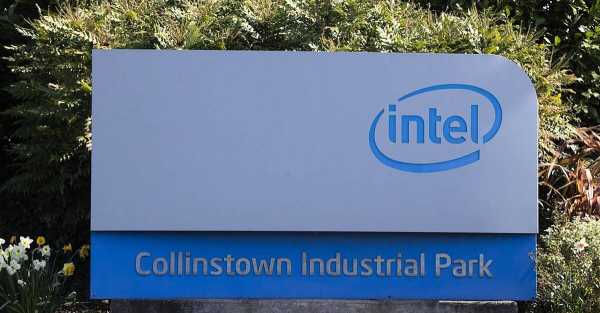
Intel shares fell nearly 6 percent in premarket trading on Friday after the company's disappointing revenue and profit forecasts disappointed investors who had been looking for confidence in a turnaround strategy from new CEO Lip-Bu Tan.
Intel was once a leading force in chip manufacturing, but after years of setbacks, it now needs to play catch-up as it seeks to strengthen its position in artificial intelligence while its main market, China, remains locked in a trade war with the United States.
The company is also a significant employer and investor in Ireland, with more than 4,900 employees at its Leixlip site, home to its new Fab 34 chip manufacturing facility.
Enterprise Minister Peter Burke said he was continuing to work with Intel during what he said was a challenging time for workers amid ongoing uncertainty.
Mr. Burke said on Friday: “I took note of Intel’s release of its first-quarter financial results last night and the comments from CEO Lip Bu Tan, who described it as a ‘step in the right direction’ and also confirmed that there will be reductions in Intel’s global workforce.
“While no specific information was provided on the number or locations of the cuts, the company said it plans to reduce operating expenses by $500 million this year and $1 billion next year, which will include job cuts, particularly in management and non-core engineering positions. It will likely be several weeks before details emerge on the impact of these cost-cutting measures.”
Mr Burke highlighted the positive response from Intel, which confirmed it would focus investment on its core business of semiconductor manufacturing, which is its key focus in Ireland.
Investors and analysts who had hoped Tan, appointed CEO last month, would be a catalyst for change were disappointed by the company's weak financial outlook despite his hints at a change in corporate culture and a renewed focus on core engineering.
“The most obvious takeaway from the CEO change is that it will take time,” Morgan Stanley analysts said. The California-based company said it expects revenue in the range of $11.2 billion to $12.4 billion for the quarter ended June, compared with the average analyst estimate of $12.82 billion, according to data compiled by LSEG.
While the chips are currently exempt from U.S. President Donald Trump's tariffs, China's retaliatory tariffs on U.S. imports could have a major impact on Intel: U.S.-made chips will be subject to tariffs of 85 percent or more, according to a notice issued earlier in April by the state-backed China Semiconductor Industry Association (CSIA).
Amid Tan's efforts to streamline the company and cut costs, Intel also announced it was cutting its adjusted operating expense target to about $17 billion by 2025, down from a previously stated target of $17.5 billion, and now aims to reach $16 billion by 2026.
Tang said Intel was studying the site of its plant. In February, the company said it was delaying a $28 billion plant project in Ohio until 2030.
Sourse: breakingnews.ie






